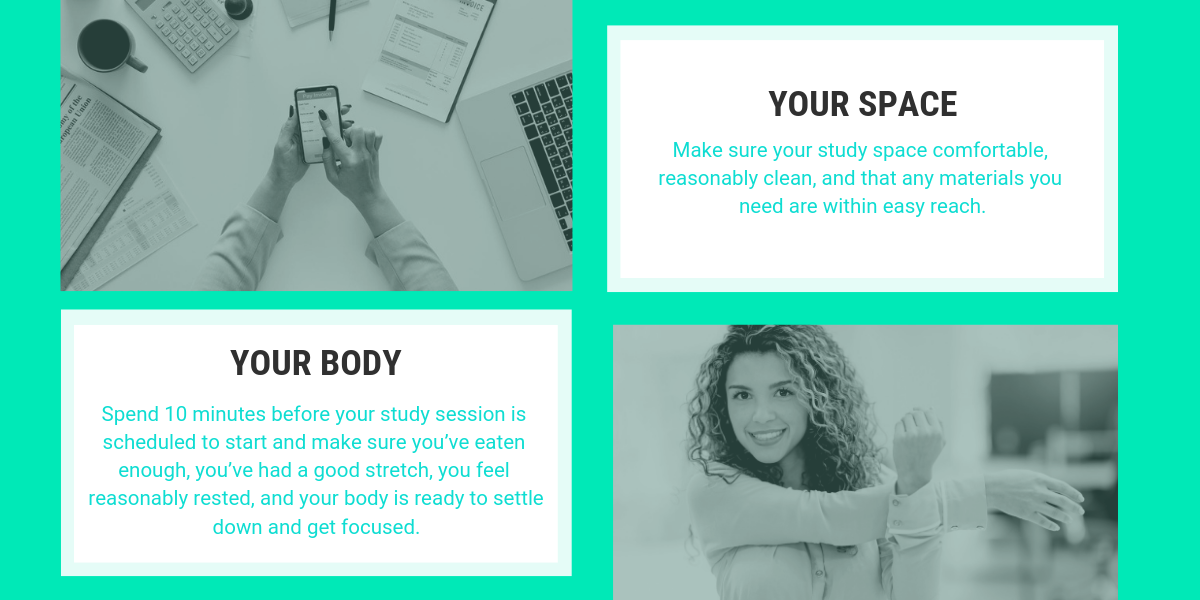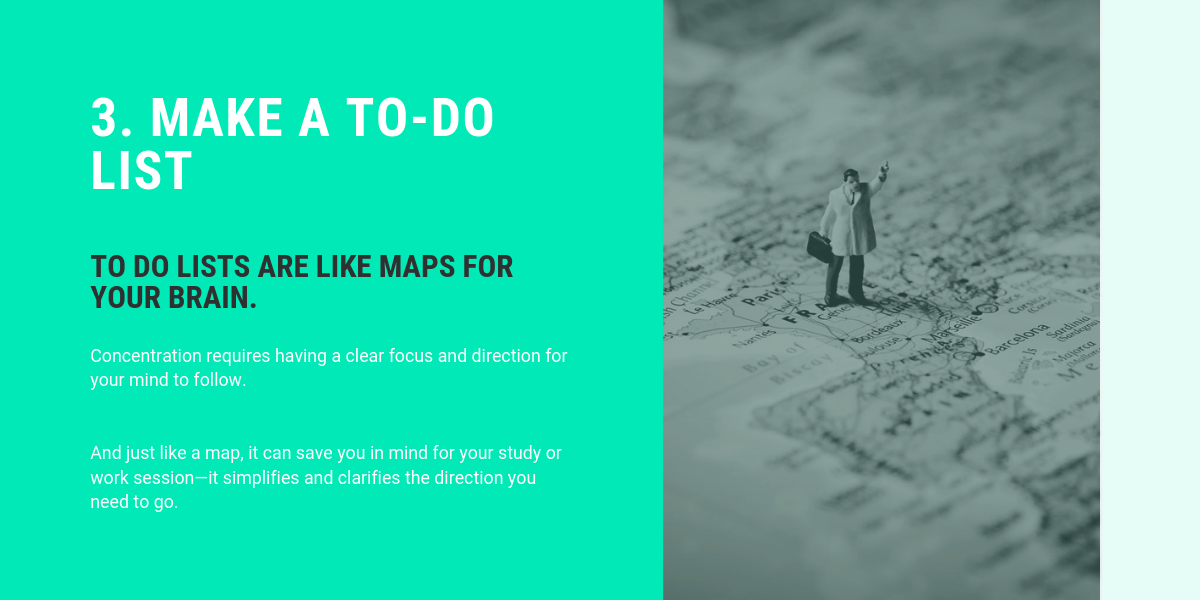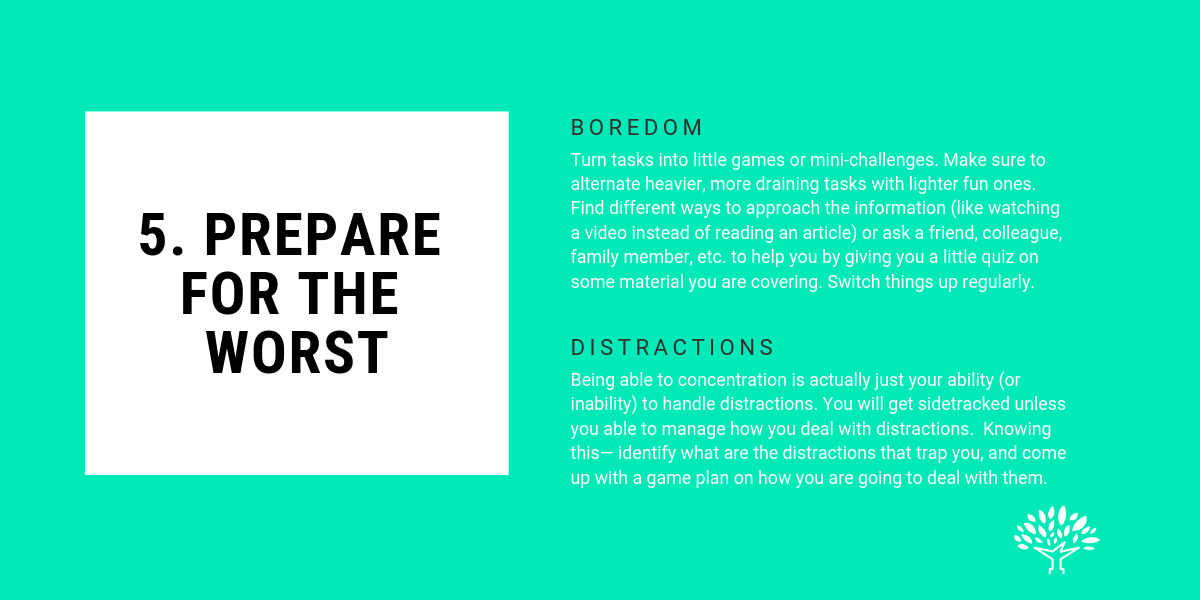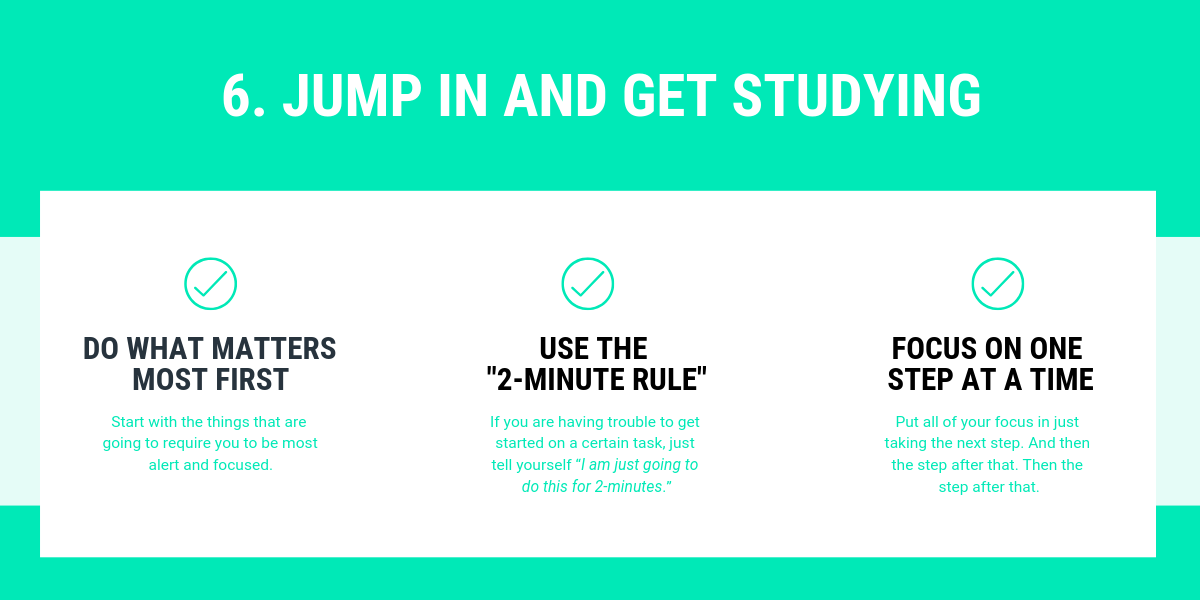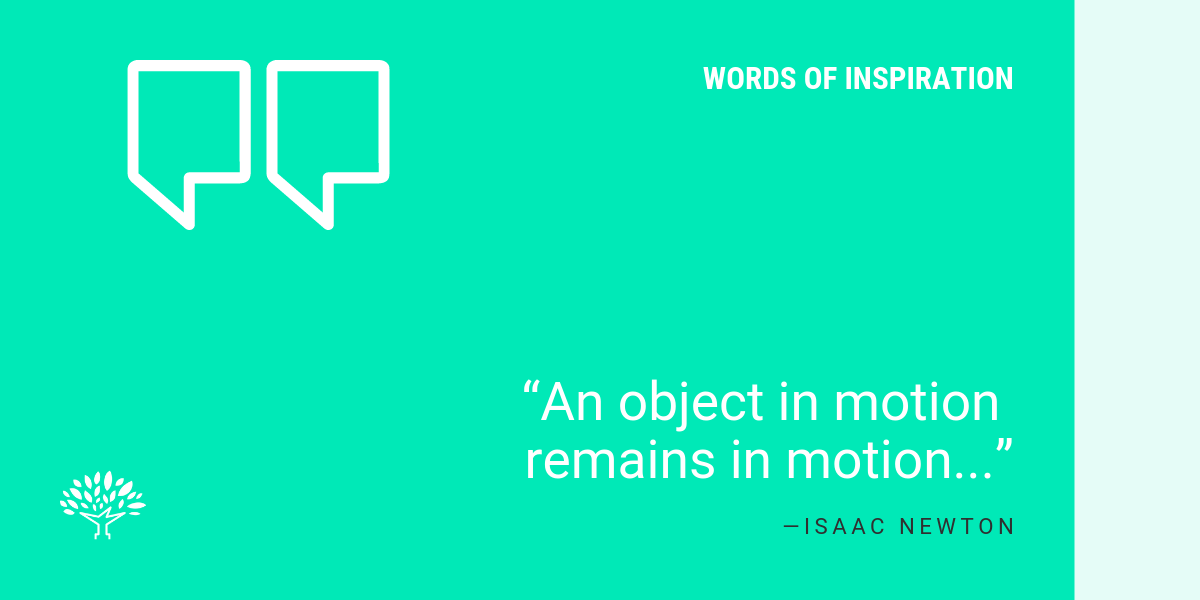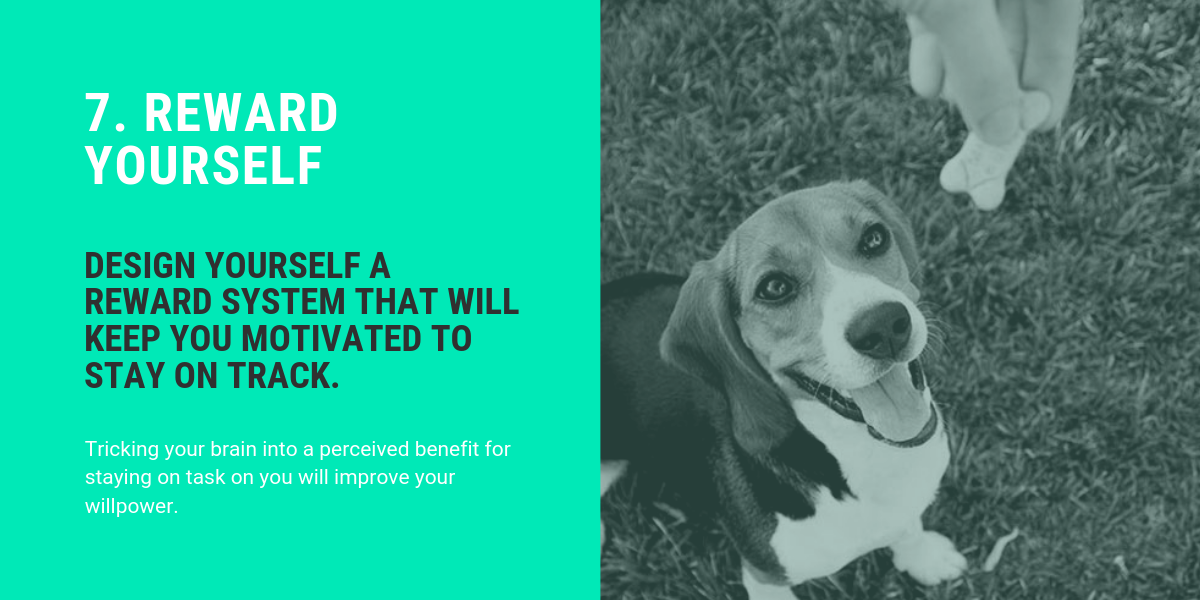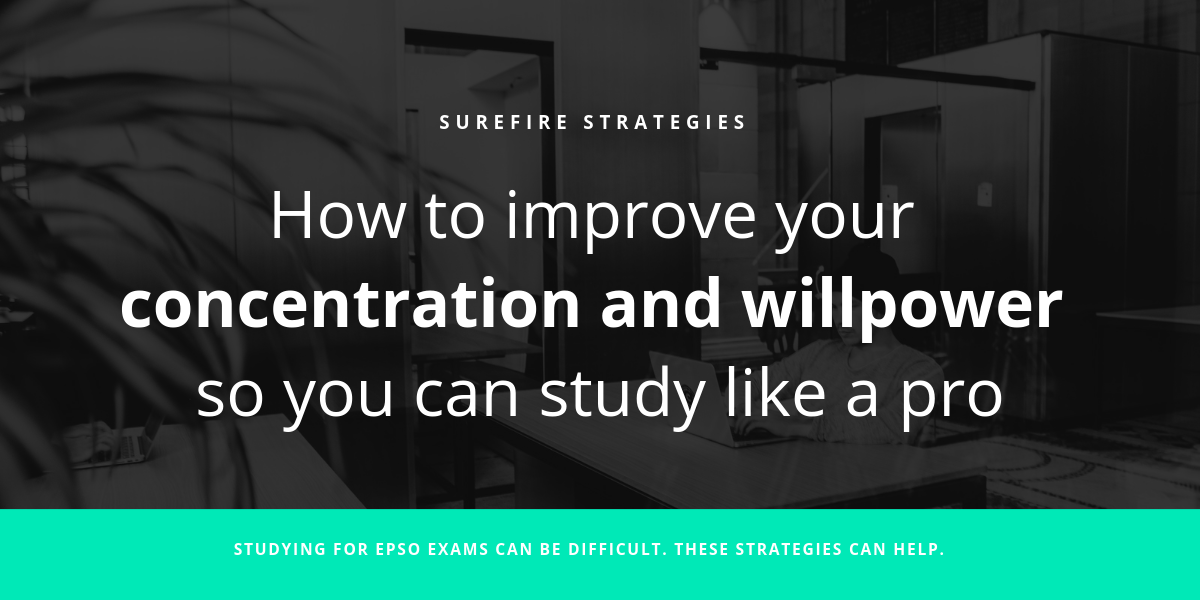
"If it’s important to you, you’ll find a way. If not, you’ll find an excuse."— Ryan Blair |
Sometimes it can be a challenge to stay motivated to keep studying.
Sometimes it can feel impossible to even crack open your books or to log into an EPSO preparation website.
Sometimes it can seem like you’re on a roll, then you lose momentum and suddenly your social media feed is just too tempting.
Let’s face it - with all the attractive distractions out there, there are a million and one reasons not to get cracking with your EPSO exam preparation. But if your next test is around the corner, every moment spent working on improving your skills and knowledge gets you one step closer to reaching your goal of becoming an EU Official.
But what can you do to eliminate the distractions...or at least keep them under control?
How do you improve your concentration, and encourage the steely willpower it takes to stay focused and keep at those EPSO practice tests and simulations?
If you’re feeling unmotivated and you’ve perfected the art of procrastination to a tee, this guide is filled with proven strategies that can help you get on the right track.
1. Prepare yourself and your workspace
Physically prep yourself and your space. Your ability to concentrate is tied to your environment and how you feel physically.
Spending a few minutes to prep your space and body can make a difference in the length of time you are able to stay focused.
Your space
Make sure your study space is comfortable, reasonably clean, and that any materials you need are within easy reach.
This could even mean putting a bottle of water and snack on your desk so you do not need to mosey into the kitchen and risk being distracted while you are there.
If you are susceptible to getting distracted, needing to find tools, papers, snacks, or reference books can be a great excuse to lose focus.
Your body
It’s very easy to lose willpower when we’re tired, hungry, stiff, or thirsty - our bodies are a combination of many chemical and biological elements that are intertwined: if you are physically uncomfortable, your mind won’t be as sharp as it could be.
Spend 10 minutes before your study session is scheduled, to make sure you’ve eaten enough, you’ve had a good stretch, you feel reasonably rested, and your body is ready to settle down and get focused.
Optimally, you want to keep your body in good condition while studying. Pay attention to the quality of food you are eating and the amount of sleep you are getting. Exercise regularly.
If you want your mind to be in its peak state, then your body is going to need the strength to make that happen.
2. Get into the right headspace
Just as you straightened up your desk and put everything in reachable order: do the same thing cognitively - If you are mentally exhausted or emotionally distracted, you won’t be able to focus fully on your studies.
Unclutter your brain
Your space is clean and clear, your stomach is comfortably satiated, you’re well hydrated and your EPSO practice test is ready to go.
But you just can’t stop thinking about the conversation you had with your significant other this morning when they were on their way out the door.
You are checking your messages every two minutes to see if they’ve replied to your last text, and are all muddled up thinking about it.
This is a perfect distraction and will stand between you and your studying— if you let it.
If you want to be fully absorbed in your study materials, you have to leave your baggage at the metaphorical door.
Take a few minutes to write down any distracting thoughts, worries, issues, conversations, and problems that are on your mind.
This is not an opportunity to send a dozen more texts or to sort through any deeper psychological bumps you are going through - simply put the thoughts down, and make a mental decision that you will deal with them after your study session.
Don’t keep yourself in a constant state of willpower depletion
Exercise is a great way to get physically fit.
But you wouldn’t spend a few hours exercising right before helping a friend move house, because you know that it would physically exhaust you.
You’d be too tired to be any use to your friend.
Instead, you might do an intense workout a few days before, then give yourself some recovery time, before helping your friend move.
While this seems logical physically, often we don’t see our mental capabilities the same way - we push and push and push and then can’t understand why we are too mentally exhausted to go any further.
The more we train our willpower, the better it gets. But just like a muscle, it needs recovery time to get stronger.
Factor in recovery time in order to play the long game. This will help you keep your motivation and willpower consistent over time.
3. Make a to-do list
Last week, a friend and I were going between two cities. We are both locals, but he, a very late adopter to smartphone technology, has most of the trains, buses, and trams memorised by practice. He knows which routes he has taken before, and assumed they were the best routes available.
I, on the other hand, had a smartphone with a map. As we were standing on the train platform, I quickly pulled up the quickest route.
He scoffed at me and my reliance on the tech and claimed it was not necessary since he already knew the route.
His route ended up taking us an additional hour and forty-five minutes.
Which was not a problem - I had extra time to think about this article: specifically, about to-do lists.
To-do lists are like maps for your brain.
While you probably know vaguely the things you need to do, having a to-do list cuts the time spent figuring out the next step, and gets you there faster.
Concentration requires having a clear focus and direction for your mind to follow.
And just like a map, creating a to-do list for your study or work session can simplify and clarify the direction you need to go.
Start by being clear about what you want
When making the to-do list concentrate on your objectives.
“What skill will I work on during this practice session?”
“What score or time limit do I want to achieve in my next EPSO practice test?“
“What tricks or strategy will I apply?”
Once you have a clear idea about what your objectives are for the practice session, write out all the tasks you need to do to get yourself there.
Our brains thrive on progression, patterns, and predictability - if you need to concentrate, build yourself a sequence of steps that you can latch on to and follow.
Also, having separate tasks can give you the feeling of actively moving forward, instead of feeling like the session is monotonous and stagnant.
Make it manageable
Keep your to-do list short and manageable for each study session.
If you add 50 tasks to your to-do list, you’re going to feel overwhelmed and stuck easily.
Stick with short term goals, all of which you can finish in one session.
Each task should range between 10 minutes to an hour. If a task is going to take more than an hour, break it into two or three tasks (for example, instead of writing “Read The Ultimate EU Test Book” write “Read pages 100-150” as one point, “Read pages 150-200” as a different point, and so on.)
Think short batches of achievable tasks rather than vague, difficult to achieve tasks. This will help you stay focused on the task at hand and accomplish them.
4. Set clear goals
Once you’ve got a to-do list ready to go, breakdown the tasks even further so that you know exactly what you need to do, and how you are going to do it.
Here is the thing - distractions crop up when you trip into the pitfalls of feeling overwhelmed, bored, or frustrated.
Your brain is going to be looking for an out, and as soon as your Facebook messenger dings, it is going to escape like a bat out of hell.
If you want to maintain high levels of concentration you’ve got to minimise the risks of feeling overwhelmed, bored, or frustrated.
Breaking the tasks down and being clear about what you want to achieve with them can help with that minimisation, enabling you to focus for longer.
Assign time frames and limits
On the handy, little to-do list you made, estimate how long you want to spend on the task.
How you break that time up is up to you: you could clarify what time of day you would like to work on that task (e.g. Between 11 am to 12 pm) or the amount of time you’d like to spend on it (e.g. 1 hour).
When we feel there is a sense of urgency, we are more motivated to stay focused, which can help you concentrate for longer periods of time.
To help encourage this, set a timer for how long you are going to work on that task. For example, aim to complete 20 abstract reasoning questions within 20 minutes using the exam mode setting in your EU Training Practice Centre - your brain will have no time to even come up with possible distractions during that time! Then review your results and find areas you can improve in.
If you know you only have 15-30 minutes dedicated to a task, you are going to be less likely to click on YouTube and get lost down some trail of endlessly fascinating but ultimately time-wasting videos.
Have clear cut off points
If you are on a task that is grueling and difficult (for example, “Read pages 250-300”) and you are struggling to make it through - close the book at the end of the cut off time, even if you haven’t fully completed the task.
This will reduce the risk that you will become overwhelmed, bored, or frustrated by the practice session. You can always come back to it.
Focus on something else, instead of throwing in the towel.
5. Prepare for the worst
Unless you are a willpower heavyweight - chances are you will come across pitfalls and obstacles.
So prepare for them!
Know they are coming and make sure you’ve got a plan for avoiding them.
Boredom
A major concentration pitfall is boredom.
The brain simply doesn’t want to focus on this boring thing it feels forced to do.
Concentration quickly dissipates...and Twitter, with all its bright colours and controversies, is endlessly more exciting.
Fool your brain into thinking what it is doing is incredibly interesting, fun, exciting, and challenging.
Turn tasks into little games or mini-challenges.
Make sure to alternate heavier, more draining tasks with lighter fun ones.
Find different ways to approach the information. For example, watch a methodology webinar or book a personal coaching session with an EPSO expert or join a classroom training session to gain a new perspective on how to tackle each EPSO test.
Switch things up regularly.
Keeping your brain engaged will help you strengthen your concentration and will power, and help you resist the temptation of distraction.
Distractions
Social media. A chatty roommate, partner, or family member who has just come into the room. Construction on the street. A messenger service that keeps dinging. Plants that need to be watered. A little snack from the fridge.
Distractions can be endless and destructive to your desire to sit down and focus.
Being able to concentrate is actually just your ability (or inability) to handle distractions.
You will get sidetracked unless you are able to manage how you deal with distractions.
Knowing this: identify what are the distractions that trap you, and come up with a game plan on how you are going to deal with them.
If you are often distracted by the internet and social media, turn your screen on to fullscreen, turn your phone off, or set it to on “Do not disturb”.
Chatty people around you? Move to somewhere quiet, or put a sign on your door that says “Studying, please don’t disturb”
Unrelated chores or tasks that seem urgent? Write yourself a sticky note to remind yourself to do it later.
Make a list of the things that distract you, and set yourself up a plan for how you are going to deal with them if and when they come up.
6. Jump in and get studying
Do what matters most first
Did you know that our willpower is highest in the morning?
Psychologist Kelly McGonigal suggests that it is because the brain is refreshed by sleep - by the time the late afternoon hits all that early morning vigor has worn away and we are more likely to feel depleted and easily distracted.
If you are working while doing your EPSO studying - get up early before work to hit your books instead of later in the evening when you get home.
If you have the full day to study, start with the heaviest and most important tasks first thing, while your willpower is at its peak.
While you can still alternate between more complex and difficult tasks and lighter tasks on your list, make sure you start with the things that are going to require you to be most alert and focused.
Use the ‘2-Minute Rule”
Sometimes we don’t even want to get started on a task. It is looming on our to-do list, but we can’t sum up the power to even begin.
The 2-minute rule is a study hack that can help you cheat this focus block.
If you are having trouble with getting started on a certain task, just tell yourself: “I'm just going to do this for 2-minutes.”
Set a timer if you need to.
90% of the time you will continue on the course once you get started. The ball will get rolling and you’ll halt the pesky procrastination tendencies in their tracks.
Focus on one step at a time
Imagine you are a mountaineer at the base of a mountain.
You look up to the top of the mountain and it seems insurmountable.
You are pacing at the bottom of the mountain, and all you can think about is how big the mountain is. You are riddled with self-doubt that you will be able to make it to the top, and all you can see is the massiveness of the job ahead of you and all the obstacles that are in between you and the summit.
But you will never make it to the top unless you start taking steps. We climb a mountain one single step at a time.
Stop thinking about the entire mountain - in fact, don’t even look up at it.
Put all of your focus into just taking the first step. And then the next step. Then the step after that.
It is a strategy for overcoming the immensity of a task that can be disabling.
EPSO competitions are highly competitive and you need to try and do your absolute best in each exam to make it onto the final reserve list. But dwelling on the great task at hand will not help you get there.
Tackle one task, one test, one obstacle at a time. Then focus on tackling the one after that when you get there.
If you need to take a little break to refocus, take it. Then get back on the path.
7. Reward yourself
If we’ve learned anything from behavioral science, it's that basically anything with a brain likes rewards.
The EPSO competition process is a long one.
It drags out, there are multiple steps and phases to complete and after all this time, dedication and waiting there are no guarantees.
This makes it rather hard to stay motivated about sticking to a study plan.
But it is essential if you want to make it to the end where the reward is extremely satisfying.
As a result, we get tired, frustrated, overwhelmed, and discouraged. The reward is so far off it seems impossible to get to.
A simple hack is to reward yourself regularly for accomplishing the smaller tasks along the way.
Design yourself a reward system that will keep you motivated to stay on track.
Whether it is “After I read these 50 pages, I will watch 15 minutes of my favourite YouTuber.”
or “When I successfully pass that test, I will take myself to a special lunch in that new trendy restaurant in Ixelles.”
or “If I can focus on this without checking my social media for the next hour, I will treat myself to a piece of chocolate.”
Tricking your brain into a perceived benefit for staying on task will improve your willpower.
This will help keep up the appeal, which will make it easier to stay on track.
Conclusion
Studying is challenging. Staying focused and avoiding distractions for extended periods of time takes an incredible amount of willpower.
The best way to strengthen your willpower is to come up with strategies that help you avoid pitfalls and plan for successful studying sessions.
If you don’t have a plan in place you could quickly become discouraged, bored, or overwhelmed, so take the time to plan ahead, it will pay off in the long run.
